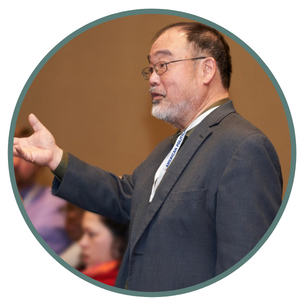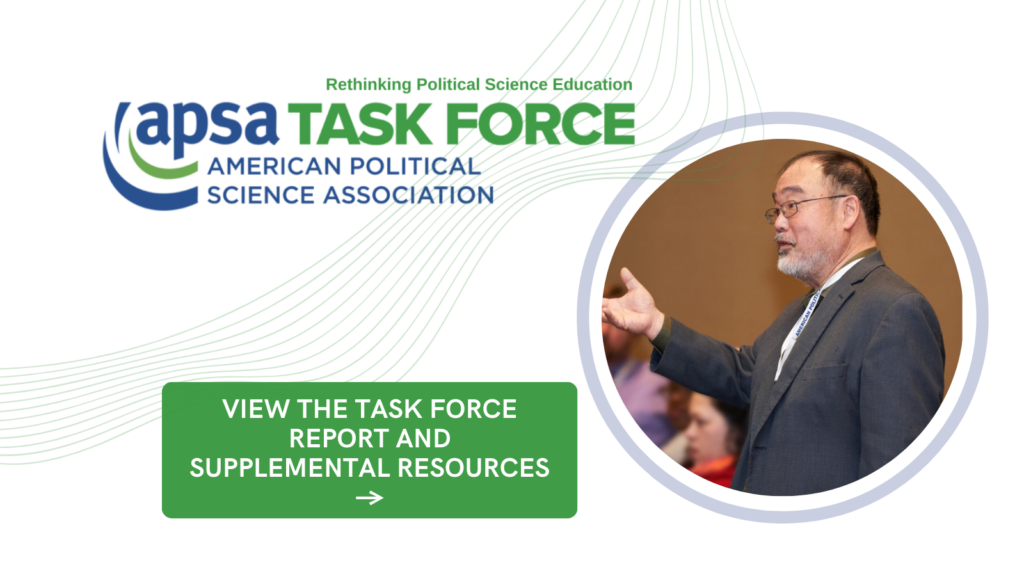
In 2021, former APSA President John Ishiyama appointed the Task Force on Rethinking Political Science Education.
Higher education has changed drastically in the last twenty years, and the future promises even more sweeping changes. The emphasis on measurable outcomes of programs, the forthcoming steep decline of traditional undergraduate students, the decreasing number of tenure track positions, and systemic global challenges to democratic governance have impacted the discipline of Political Science.
With the last systemic examination of undergraduate education, published in 1991, and little disciplinary analysis of graduate education, the profession needs a collective examination of our shared goals and values. Relying on the scholarship of the last two decades, this report examines best practices and makes recommendations for departments as they reconsider their own programs and curriculum.
Use this page to access the complete report, view the report's table of contents, find supplemental resources, and stay up to date with forthcoming Task Force programming.

APSA President, 2021- 2022
John Ishiyama, University of North Texas
"In many ways the teaching of Political Science is more important now than ever before, not least of all because we teach skills that produce leaders.
Our students know (or should know) how to diagnose and analyze a problem; how to come up with plans, based on evidence, to solve problems; how to mobilize support for their initiatives and actions; and how to use ethical insights to guide the use of power to achieve desired ends. These skills are needed now at all levels of society, not just in government, but also in the private sector, the nonprofit sector and in civil society."
— John Ishiyama | An Introduction to the Rethinking Political Science Education Task Force
— Table of Contents —
From the Report
"We must teach the science of politics—what we know about how politics “works”—but we must also promote democratic values among our students along with tools of civic engagement."
"The overarching focus of this Task Force was on how our programs are structured in terms of course content, requirements, sequencing of classes, and activities towards degree attainment."
"Political Science teaching should not only grapple with historical and ongoing developments or on issues with universal support, but also with under-discussed political realities that demand critical thinking."
Task Force Members
Presidential Biography
- Breuning, Marijke."Teaching Research and Researching Teaching: The Impactful Career of John Ishiyama." Political Science Today 1 (3): 18-24.
- Takeda, Okiyoshi (Oki), Ngoc Phan, Kim Geron, Andy Aoki, James S. Lai, Loan Le, and Pei-te Lien. "Teacher-Scholar and Advocate for Inclusion." 2021. Political Science Today 1 (3): 25-27.

